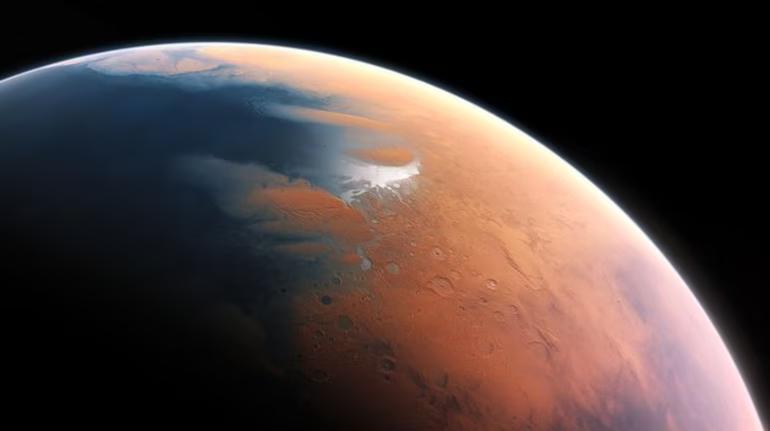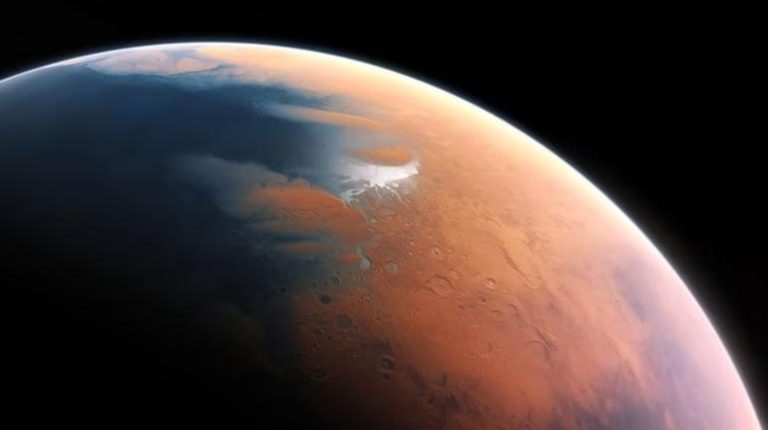
Mars may have once had rain & snowfall, finds new study
For years, scientists have been fascinated by the possibility of life on Mars. With its barren, rocky landscape and thin atmosphere, the Red Planet seems like an unlikely candidate for life as we know it. However, a recent study by the University of Colorado Boulder has shed new light on the planet’s past, suggesting that Mars once likely experienced rainfall and snowfall, feeding valleys and channels.
Studies have long suggested that there is evidence that at least some water existed on the surface of Mars around 4 billion years ago. However, the source of the water has not been ascertained yet. This new study provides crucial insights into the planet’s past climate and may help scientists better understand the possibility of life on Mars.
According to the study, published in the journal Science, the researchers analyzed data from NASA’s Mars Reconnaissance Orbiter, which has been mapping the planet’s surface since 2006. By studying the data, the team discovered a network of valleys and channels that were likely carved out by water flowing on the surface.
The researchers found that the valleys and channels were not formed by tectonic activity or erosion, but rather by water flowing through them. They also discovered that the valleys and channels were not just random features, but were actually part of a larger network that crisscrossed the planet.
The team believes that the water on Mars was likely fed by rainfall and snowmelt, which would have occurred when the planet was much warmer than it is today. The water would have flowed through the valleys and channels, carving out a path as it went. Over time, the water would have evaporated, leaving behind a dry, barren landscape.
The discovery of water on Mars is significant because it suggests that the planet may have been habitable in the past. If there was water on Mars, it’s possible that there could have been life, either in the form of microorganisms or more complex life forms.
The study’s findings are also important because they provide new insights into the planet’s climate and geology. The team’s analysis of the data suggests that Mars was once much more hospitable than it is today, with a thicker atmosphere and a more stable climate.
The researchers believe that the planet’s climate changed over time due to a combination of factors, including changes in the planet’s orbit and the loss of its magnetic field. As a result, the planet’s atmosphere was stripped away, and the climate became much harsher.
The study’s findings are not without controversy, however. Some scientists have questioned the team’s methods and conclusions, arguing that the data may not be as conclusive as the researchers claim.
Despite the controversy, the study’s findings are an important step forward in our understanding of Mars and its potential for life. The discovery of water on the planet suggests that there may have been a time when life was possible, and it provides new insights into the planet’s climate and geology.
As scientists continue to study Mars and its potential for life, the discovery of water on the planet is an important clue. It suggests that the planet may have been habitable in the past, and it provides new insights into the planet’s climate and geology.






